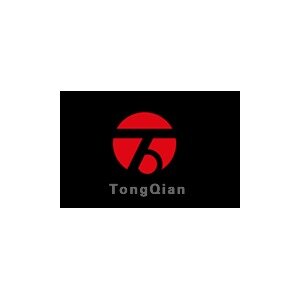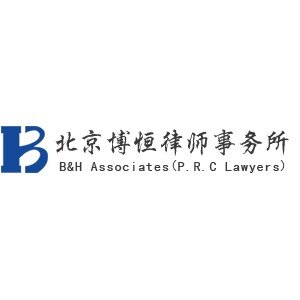Best Mortgage Lawyers in China
Share your needs with us, get contacted by law firms.
Free. Takes 2 min.
Free Guide to Hiring a Real Estate Lawyer
Or refine your search by selecting a city:
List of the best lawyers in China
About Mortgage Law in China
Mortgage law in China plays a crucial role in the country's financial and real estate markets. A mortgage in China refers to a legal arrangement where a borrower pledges property to a lender as security for a loan. The legal framework governing mortgages in China is primarily found in the Civil Code of the People's Republic of China, effective as of January 1, 2021, which replaced previous property laws. This framework outlines the rights and responsibilities of both lenders and borrowers, aiming to protect the interests of all parties involved in the mortgage process.
Why You May Need a Lawyer
There are several situations where hiring a lawyer in the field of mortgage law in China may be beneficial:
- **Understanding the Complex Legal Framework**: The mortgage process can be complex due to the various laws and regulations that apply. A lawyer can help you navigate these intricacies.
- **Negotiating Mortgage Terms**: Lawyers can assist in negotiating terms with lenders to ensure that they are fair and reasonable.
- **Resolving Disputes**: In cases of disputes, such as foreclosure or payment issues, legal assistance is vital to protect your interests.
- **Compliance with Regulations**: A lawyer can ensure that all transactions adhere to Chinese mortgage laws and regulations, avoiding potential legal pitfalls.
- **Foreign Buyers**: For non-residents or expatriates, understanding the local laws regarding real estate purchase and mortgages can be especially challenging without legal guidance.
Local Laws Overview
Key aspects of local laws regarding mortgages in China include:
- **Property Rights**: The Civil Code outlines the property rights and the legal procedures for securing a mortgage on real estate.
- **Loan-to-Value Ratios**: There's a cap on the amount a borrower can mortgage relative to the property's value, determined by the People's Bank of China.
- **Foreclosure Procedures**: Laws dictate precise steps and timelines for foreclosures to protect both lender and borrower interests.
- **Registry Requirements**: Mortgages must be registered with local real estate administration departments, ensuring transparency and legal enforceability.
Frequently Asked Questions
1. Can foreigners obtain a mortgage in China?
Yes, foreigners can obtain a mortgage in China, but the process can be more complicated than for Chinese citizens and often requires additional legal verification and documentation.
2. What are the typical mortgage rates in China?
Mortgage rates in China vary, but they generally follow benchmarks set by the People’s Bank of China and might differ for first-time homebuyers versus second homes.
3. How is the mortgage registered?
A mortgage must be registered with the local real estate registry, ensuring that the lender’s interest in the property is legally recognized.
4. What happens if I default on my mortgage?
Default could lead to foreclosure proceedings where the lender might sell the property to recoup the owed amount, as governed by Chinese foreclosure laws.
5. Are there penalties for early repayment of a mortgage?
Early repayment penalties depend on individual loan agreements and lending policies of financial institutions.
6. How long does the mortgage process take?
The time frame for obtaining a mortgage can vary, typically ranging from a few weeks to a couple of months depending on document verification and lender processes.
7. What documents are needed to apply for a mortgage?
Required documents typically include personal identification, proof of income, property appraisal, and any additional requirements stipulated by the lender.
8. Can mortgage terms be renegotiated?
Renegotiating mortgage terms can be possible but will depend on the lender’s policies and the borrower’s financial situation.
9. How are mortgage defaults resolved?
Mortgage defaults might be resolved through negotiation with the lender, restructuring the loan, or ultimately through legal proceedings and foreclosure.
10. Is there a minimum down payment required?
Yes, the minimum down payment varies based on property type and buyer's status (first-time or second home), governed by national financial regulations.
Additional Resources
If you need further assistance, consider these resources:
- **Local Real Estate Bureaus**: For property registration and mortgage compliance information.
- **Legal Aid Centers**: Provide pro-bono services or consultation for those who qualify.
- **The People’s Bank of China**: For guidelines on mortgage rates and financial regulations.
- **Real Estate Law Firms in China**: Specialized firms that offer services specifically in property and mortgage law.
Next Steps
If you are seeking legal assistance with mortgages in China, consider these steps:
- **Consult with a specialized lawyer**: Look for attorneys with expertise in Chinese real estate and mortgage law.
- **Gather necessary documentation**: Ensure you have all required documents before consulting a lawyer to expedite your case.
- **Evaluate legal services**: Assess the costs and reputation of law firms or legal advisors you are considering.
- **Schedule a consultation**: Most lawyers offer an initial consultation to understand your case and outline possible solutions.
Taking informed steps will help you navigate the complexities of mortgages in China, ensuring that your interests are adequately protected and represented.
Lawzana helps you find the best lawyers and law firms in China through a curated and pre-screened list of qualified legal professionals. Our platform offers rankings and detailed profiles of attorneys and law firms, allowing you to compare based on practice areas, including Mortgage, experience, and client feedback.
Each profile includes a description of the firm's areas of practice, client reviews, team members and partners, year of establishment, spoken languages, office locations, contact information, social media presence, and any published articles or resources. Most firms on our platform speak English and are experienced in both local and international legal matters.
Get a quote from top-rated law firms in China — quickly, securely, and without unnecessary hassle.
Disclaimer:
The information provided on this page is for general informational purposes only and does not constitute legal advice. While we strive to ensure the accuracy and relevance of the content, legal information may change over time, and interpretations of the law can vary. You should always consult with a qualified legal professional for advice specific to your situation.
We disclaim all liability for actions taken or not taken based on the content of this page. If you believe any information is incorrect or outdated, please contact us, and we will review and update it where appropriate.
Browse mortgage law firms by city in China
Refine your search by selecting a city.














